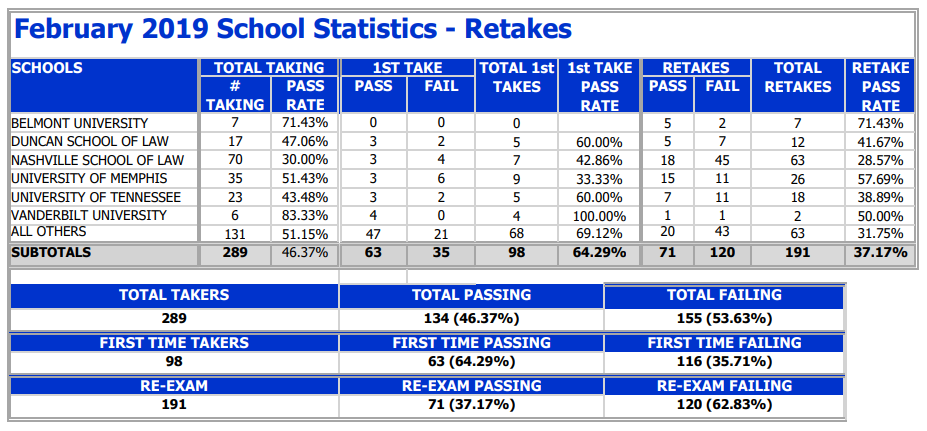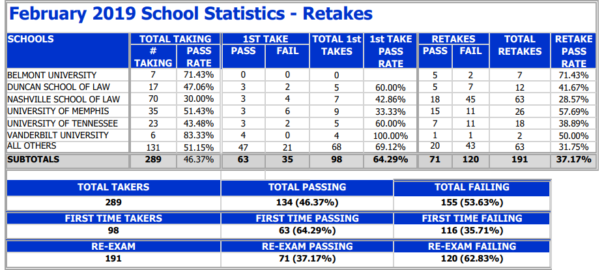The Tennessee Board of Law Examiners has released the results of the February 2019 Tennessee bar exam. The exam—which was taken by 289 prospective lawyers—resulted in an overall passage rate of 46.37%. Special shout out to successful exam-taker Kenny Dyer, whose herculean work as the author’s private investigator on the since re-opened Joseph Webster innocence case cannot be overstated.
Individual school statistics were as follows:

Vanderbilt Law School maintained its multi-year grip on the state’s top spot with an overall passage rate of 83.33% (in a recent previous year, Belmont Law School had claimed the mantle). Tennessee’s other accredited law schools registered overall passage rates of 71.43% (Belmont), 51.43% (Memphis), 47.06% (Duncan), and 43.48% (UT).
Bringing up the rear again, Nashville School of Law—which probably could have benefited from competition from a public law school in Middle Tennessee but was recently protected from it—mustered an overall passage rate of just 30.00%. For context, in 2014, Nashville School of Law secured new leadership and pledged to improve its state-worst passage rate of what was then 65-70%. Since that time, the school has posted overall passage rates of 50% (February 2015), 28% (July 2015), 30% (February 2016), 28% (July 2016), 35% (February 2017), 38% (July 2017), 13% (February 2018), and 42% (July 2018). Whether BLE Member/former Tennessee Supreme Court Justice William Barker’s definitely genuine concern that “I just hate for people to come spend all the time and money and years of their lives with no possibility of passing” will ever result in him taking action against a non-immigrant remains to be seen.
Like ScotBlog? Join our email list or contact us here, or follow along on Twitter @Scot_Blog and facebook at https://www.facebook.com/scotblog.org

